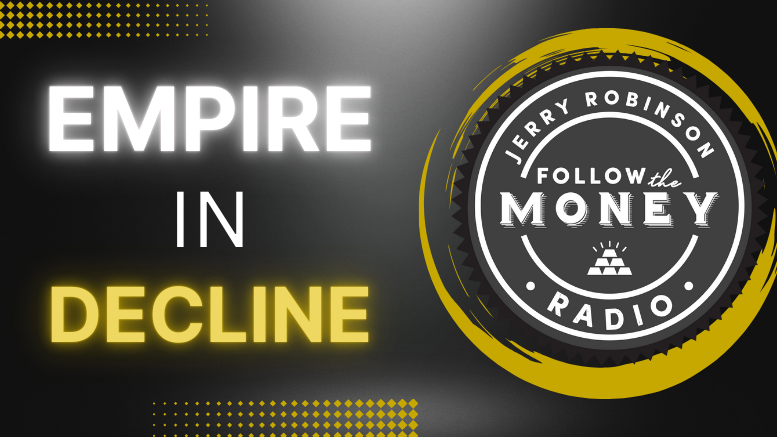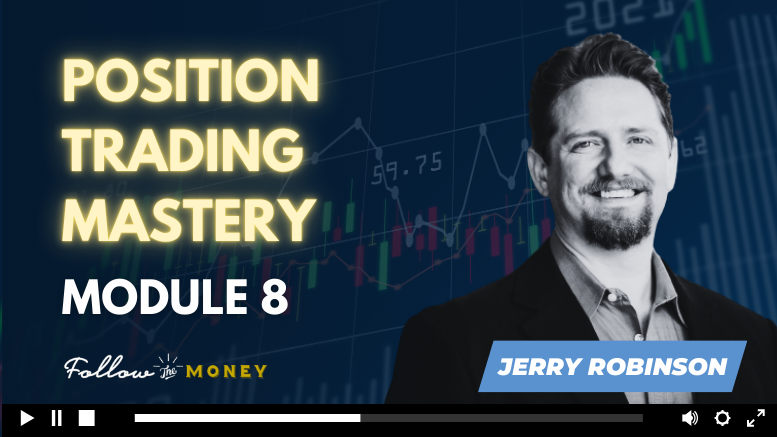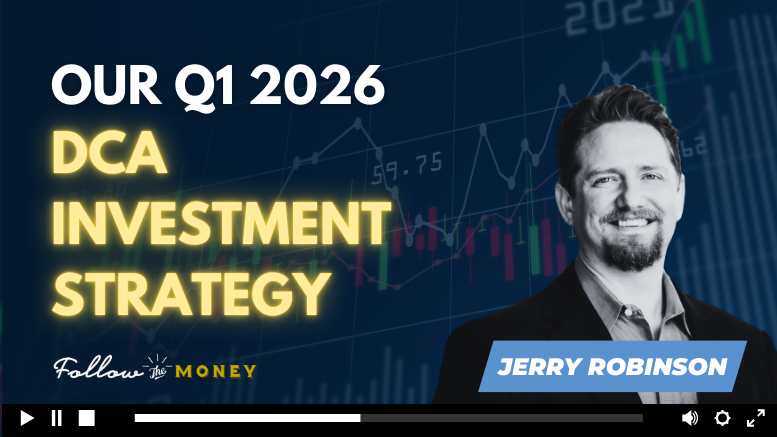

SHOW NOTES – 11/18/14
On Faith and Family: A Conversation With Dr. Ron Paul
Plus, an important update for precious metals investors
FTMDAILY.COM – On today’s program, we have a very special guest interview for you to enjoy. He is a former 11-term congressman from Texas, as well as a respected medical doctor. You undoubtedly know him best for his stance on the Federal Reserve, sound money, and personal liberty. He has run three different presidential campaigns, the last of which gained him widespread popularity, especially among younger individuals. Despite a media-wide shutout in the 2008 and 2012 campaigns, he has managed to spread his ideas of freedom and peace to millions of Americans. His name is Ron Paul, and he is here to talk about life after Congress, his faith, and how he is preparing for America’s bleak future.
SEGMENT ONE: An Interview with Congressman Ron Paul
Jerry Robinson talks with the former Congressman, Ron Paul, about his new homeschool curriculum, his faith, and why the evangelical community never really embraced his message during his presidential campaigns. Dr. Paul also discusses some strategies for weathering the current economic chaos.
Jerry Robinson, host: After serving 11 terms (well over 20 years) as a Congressman and running three presidential campaigns, do you feel a sense of relief now that you’re out of the pressure cooker that is Washington DC, or do you find yourself often longing to rejoin the debate from the inside?
Ron Paul: Well, no, not on the inside, but I am very pleased that I can stay in the debates. It’s a different format, but I think that I am very comfortable with what I am doing, and also very surprised at what happened in 2008 and also in 2012. I’ve been around for a few years trying to get people’s attention and never figured it would happen, so I was pretty surprised and very pleased that it’s now a subject many people are talking about. I think what happened was a couple of things; one was the internet. We got a lot of information spread on the internet: the presidential campaign as well as the economic crisis, along with the failure of our ridiculous foreign policy. Those things coming together were really of big interest to the young people. That’s where the best reception was. They had, over the years, been mildly introduced to Austrian economics, and when you put that all together, there was sort of an explosion of interest, which, quite frankly, was quite a surprise. And, yet, I was pleased that it happened.
JR: One of the most common themes of your message over the last few decades has been the need for a new American Revolution. That theme has even made its way into your book titles, including The Revolution: A Manifesto and your latest book The School Revolution: A New Answer for Our Broken Education System, in which you state on page 16 that “There can be no revolution without a revolution in education.” What do you mean by that?
RP: I think that we’re in a battle of ideas, and ideas have consequences. And ideas, when the time comes, as Hugo said, can’t be stopped. We can have political battles and armies trying to stop things, but when certain conditions are where the people accept ideas, governments will respond to those ideas. I see changing people’s attitudes and minds as the most important. I know I was in Congress and in politics and all that, but I thought it was very secondary to trying to reach people and suggest to them that there is something seriously wrong, which they agreed with. But they said, “Let’s just switch parties.” Even now, of course, people are looking at that. I think it’s much different than that. I think that it’s changing people’s attitude which means the whole school system has to be changed. For a 100 years, we have drifted a long way from the original intent of the Constitution; sound money, non-interventionist foreign policy, free markets, no welfare, and all these things. And we accepted, especially in the 20th century, this notion that we’re big and powerful and have a moral responsibility to please the world. At the same time, there was a conclusion by the Keynesians that commodity money was ridiculous, and a few people in a closed room can decide what interest rates should be and how much money is necessary to run the economy, have central economic planning. Keynesianism, which is a bad idea, has been taught in all our schools and Congress. All of Washington is still inundated with those views. But, outside of Washington is where I get encouragement, and that’s where the revolution is occurring. It’s an intellectual revolution, and I think we’re going to see, in the next decade, continued failure of the government’s system. I think, in the last 10 years, even our economy has suffered a lot more than anybody will admit. If you’re in a low income bracket or the lower 60%, you realize there is a depression going on, and that some of the government numbers are just fiction. So, I think we’re in the midst of it, and the big question is, “Will we be able to line up and get in place the ideas that would change all this?” This is why I am very much involved in education and with my own Free Foundation and with the home school curriculum. Our young people have been indoctrinated for a long time in the government schools.
Listen to This Week’s Show on Youtube
JR: Dr. Paul I find myself in full agreement with you on this issue. As a father of a two-year old boy, my wife and I are facing this question now, and we have decided to take the homeschool route. What advice would you give to families like mine who see homeschooling as the best option but maybe have no idea where to start?
RP: Well, there’s a lot of that. I’m sure the internet is loaded with opportunities for home schooling, and there’s a lot of organizations that do it now. My program is designed to orient people toward the freedom philosophy. It does not have a religious education attached to it. Not that I’m opposed to that, because I think some schools will emphasize that. But, mine is designed to look for people who want to get in leadership positions in the freedom movement, understand economics from a different viewpoint, understand history from a different viewpoint, and understand the moral principles behind individual liberty. That is available, but I don’t think everybody has to be home schooled. I don’t think it would hurt, but, probably under our conditions today where everybody has been so conditioned to accept government education, I do think it is worthwhile looking at the total failure of the system. We need this revolutionary change in ideas that the federal government has to be out of it. We don’t want the federal government and the UN involved. When I was in public schools myself, it was just the local people that had the schools, and it didn’t provide quite the danger. So, people who are looking for home schooling, they can find it. Ours is at RonPaulCurriculum.com, and we would never propose that we think every single person should take this course. There are some parents that say, “Oh, no.” and sort of cringe at assuming the responsibility , but, everyday, more and more people are looking to it because they look at what’s happening in the public school system with the violence and the drugs and the lousy education going on. I think it’s the wave of the future, and I’m encouraged by it.
JR: Let’s move our discussion of revolution from the school house to the White House. Dr. Paul, one of the things that I admire about you the most is that you have been consistent and unwavering in your political principles and ideals. And I would venture to say that this is what endears you to many of your supporters as well. However, I must admit that those same feelings have not been transferred to your son, the Senator from Kentucky, Rand Paul, who is expected by most analysts to throw his hat into the ring for the 2016 presidential race (perhaps as early as this spring). I would suspect that I am not alone among your supporters with my hesitancy concerning your son. So, would you please speak to that for a moment. You know your son better than anyone else in the world. To the avid Ron Paul supporters in our listening audience who may share similar concerns about your son, tell us why you think Rand would make a good president, and, perhaps more importantly, how would that presidency differ from a Ron Paul presidency?
RP: Well, I’m really not going to get into that because that’s more family divisiveness that somebody might want to look for. Now, there’s differences, his tactics are different. He understands the philosophy that I’ve preached for so long, and his tactics will be different. I’m more inclined to look at comparing him to all the other Republican candidates and everybody else in the Senate. When I do that, it’s very easy for me to see that he’s far superior over the others. But, I’m not going to dwell on what is perceived as differences in the way we approach things.
JR: OK, Dr. Paul, regarding the topic of faith. I can still remember the day that I gave my life to over to God at the age of 17. Since then, my faith has played an enormous role in everything that I’ve done. And when questioned about your faith in the past, you have expressed similar sentiment that your faith, while private, has played an important role in your life. Would you please share with our audience what led you to the Christian faith?
RP: Well, it was more like I was, my family made it available to me. I was brought up, I was raised in a conservative Lutheran Church, and we went through the process of understanding what that meant from a very young age. And then we were asked to decide whether we wanted to make a commitment after studying catechism, understanding, professing our faith, and then joining the Church. So, I see that as being dramatic for me in my young teenaged years. It’s something that has served me well. I’ve just had hesitation, you even acknowledged it in your statement there, that some things are private. But, I think the way a person runs their life should be the statement. By that you should be able to reveal what is in a person’s heart. So often you hear pontifications. For instance, I was never too keen on and never attended the big-time prayer breakfasts in Washington. You know, everybody went, and no matter what I thought they believed in, they were sort of carrying their religion on their shirt sleeve. We were admonished that we should pray in private and not out on the street corners to try to prove to people how righteous we are.
JR: I really appreciate your openness on this topic. Dr. Paul, I’ve long found your strong emphasis upon peace, free and honest trade, sound money, and efforts at diplomacy to be highly congruent with the message of the gospels. However, in both 2008 and 2012, your message failed to resonate amongst the American evangelical community. Why do you think that is? Why do you think the evangelical community at large has never fully embraced your message of sound economic principles, and peace and friendship with other nations?
RP: I think that’s very true, the general statement, but it certainly doesn’t apply to all because there will be many. But when you think of some very large evangelical organization, they seem to be much more determined to support the wars. In fact, there was one debate that we had in a campaign where one of the candidates used a quote from the Old Testament endorsing militancy. You know, kill thousands here and there, and that was to be construed as the message we get from the New Testament. I was always taught that the New Testament was a new testament, and that we didn’t have sacrifices and other things of the Old Testament. But, I saw in my understanding of Jesus, that Jesus was the Prince of Peace, and that you weren’t out looking for war. I cannot read that into the Scriptures of the New Testament. Why? I don’t know exactly why. It’s probably been going on for a hundred years or so, that there’s been a segment of the Christian faith that endorses this violence. It’s probably one of the discouraging things for me because its, to me, so inconsistent. It doesn’t even make any sense to me. So, I don’t have the full answer of why they do that, but I know there’s a large number that way, and all I can do is say to myself that all I can do is my very best at understanding what my faith is all about and what I believe was taught by Christ. Therefore, it’s in disagreement with the others. And, when people ask or want my opinion, I try my best to give it, but I cannot give the precise answer on why people stray.
Excerpt: Evangelicals’ Support for War at Odds With Fundamental Teachings of Jesus
JR: Dr. Paul, I do recall during the 2008 and 2012 presidential campaigns that many evangelicals questioned your support of the nation of Israel, mainly due to your desire to end foreign aid to nations across the region. Do you support the right of Israel to exist as a sovereign nation? And do you believe American should treat Israel different than other nations?
RP: No, everybody should be treated the same way. The only political responsibility we have as an official in this country is to protect the liberty of the people of the United States, and I do not believe we are the policemen of the world. I believe we should be, as Jefferson said, striving for peace. We should strive for commerce, and we should strive for friendship. I like how he used the words “honest friendship with all nations, entangling alliances with none.” I like that statement, so therefore, whether it’s the Jewish people of Israel or the Palestinians, I would think my mandate is to try to understand both and make friends with both sides, and not try to pick and choose. And, yet, that seems to be all that happens. I mean, you have more than those two factions that fight and try to get attention and control of our government. There are many, many factions that come together, and I think the best way to handle this is for us officially not to be picking and choosing. That doesn’t mean you have to endorse bad people blindly, but it also means that if an individual feels very, very adamant about supporting one group over another, let them do it. Let them send their money, let them go over, let them help, whatever. But, if someone is adamantly opposed to one faction…Let’s do something that is less emotional. Let’s say the Pakistanis against the Indians. If you’re a Pakistani-American, do what you want to do, and if you’re an Indian-American and you want to help, go do it. But, you’re on your own. If I’m an Indian-American and the Pakistani-Americans have control of our government, I don’t think they have a right to tax me or have a bias toward one or the other. I think the problems that exist around the world have been government created, and governments will not solve the problems. All that mess in the Middle East is a consequence of a war we should have never been in, World War I, and the artificial boundaries drawn up by the West, and we’re still suffering the consequences. Just look at the mess there. As it gets worse, all we do is send in more troops, send in more bombs, and we’re going to rectify all this. That is the part that I want to avoid totally and completely, but it doesn’t mean you have to endorse anybody whatsoever. You just limit the amount of political power and money that you use to try to solve the problems of the world.
JR: Dr. Paul, in recent weeks, as the Congressional midterm elections reached a fever pitch, many pastors in your own state of Texas once again defied federal law by publicly endorsing political candidates from the pulpit. Of course, this has lead to a big debate over whether churches (as 501(c)3 organizations) should be allowed to endorse political candidates while at the same time receiving tax benefits from the Federal government. Where do you stand on this debate?
RP: The government should butt out! They shouldn’t have anything to say about it. Tax codes confuse things like this. If the taxes weren’t such that you have to get exemptions in order to do some things, then they wouldn’t have to come in and regulate and say you can’t do such and such or you can’t speak politically. The tax code is the initial cause, but even if they create these programs like this, I would say that if there is the least amount of confusion on what you can say or can’t say, go down on the side of allowing people to say whatever they want to say if they’re not defrauding or telling lies about people. They ought to be able to speak freely. I would think under these conditions which are far from perfect, that a minister should be able to say whatever he wants from the pulpit and not have any IRS agent coming or a government agent coming in and trying to regulate it.
JR: And churches should continue to receive their tax-free status?
RP: Yea, they should. My idea is that you wouldn’t need it. We would all be tax free all the time. We wouldn’t have that, so there would be no need for it. No, they should be able to keep their tax free status. If you’re looking for freedom of speech, you shouldn’t have to pay for it by being forced to pay more money to the government. You can’t buy that right. So, no, you should never lose your tax free status. I just want to make everybody tax free all the time.
JR: Dr. Paul, in conclusion, one of the things that we often say around here at Follow the Money is that “The time for debate in America is over. Instead, it is important for Americans to begin preparing for the inevitable harvest of our own poor decisions.” I have personally been “preparing” through wise investment diversification, including gold and silver. I have also been working hard to get my family “off of the grid”, so to speak. You have been warning of something similar for decades. How would you recommend our listeners prepare for the inevitable tough days ahead?
RP: Well, it’s going to vary from one to another. You know, if you live in an urban area, I think having a place to go is important. I mean, when you think of how many people there are, there’s no way everybody can be prepared in a proper manner, but you have to do what you can. I think the investment in the metals is a very good idea. I think if you’re inclined to understand or know how to do some small farming, I think that is important. But, we have all of these things that we can do, and I do them. But, when I think about it, I come to the conclusion that there’s a lot of guns that the government uses. They come, and even our gold, they come and take our gold, which they have in the past. Even today, they might not come, but they’re going to tax the gold if you want to use it. So, I come down to if you want to invest trying to protect yourself, it has to be by the education. The understanding about living in a free country; everybody should be investing in that because as long as you have a tyrannical government all this stuff is going to be really tough. But, in the meantime, we should, because we may have tough times for a few years and then things will straighten out, or they may sink, continue to prepare. Right now, I think we are more likely to have a serious downturn in the economy, a continued serious attack on our civil liberties, that will cause it to last a lot longer. For instance, this recession that they call it, has been going on for six years now, but the poor growth in wages has been going on since the 1970s. We’re in the midst of a major change, and I see that the only answer for that is changing people’s mind and trying to tell that if you live in a free country that it can all be resolved. I’ve told people that I think that if something happened that we lost everything tomorrow, but we had our liberties, true liberty, we’d all be back on our feet rather shortly. So that’s the most valuable thing. But, in the meantime, people have to be as creative as possible to protect their families both financially and physically. We cannot depend on the government to financially take care of us nor can we expect them to protect us. Matter of fact, most people fear the government more now because we see all the problems like the sting operations, all the excessive police force, and the excessive force of big government. These are the kinds of things that are the biggest trouble.
JR: Dr. Paul, it has been an honor having you on the program today. For those in our listening audience who may be new to your work and would like to get more information, where is the best place for them to go to get more information about you and your work?
RP: Well, I think going to the Ron Paul Curriculum is a good place to start, and there will be connections there to the other ones. We have about six organizations. I can’t give them all out, but the ronpaulcurriculum.com would be a good one.
JR: Thank you for joining me on Follow the Money Weekly radio, Dr. Paul.
RP: Jerry, it was nice to be with you.
Links from Today’s Show:
The Ron Paul Homeschool Curriculum (Grades K-5 are FREE!)
Ron Paul’s Free Foundation
Ron Paul’s Farewell Speech to Congress
Get Ron Paul Latest Book, The School Revolution: A New Answer for Our Broken Education System
Incredible Claims from “20th Hijacker” Say Saudi Royals Funded 9/11 Attacks
Map: The world’s 36 million slaves
SEGMENT TWO: Update for Precious Metals Investors
Tom Cloud – Precious Metals Advisor
 Tom Cloud joins us for the latest in the gold and silver markets and shares some of the fundamental and technical factors that are affecting prices right now.
Tom Cloud joins us for the latest in the gold and silver markets and shares some of the fundamental and technical factors that are affecting prices right now.
Free Precious Metals Investing Resources >>
Click here for over 10 hours of free precious metals investing educational resources >>
Receive our weekly podcasts and other important alerts
Get our Podcast Delivered Right in Your Inbox Every Tuesday

Recent Podcasts by Jerry Robinson
DISCLAIMER: The above trading ideas are from my own personal stock watchlist and are for educational and informational purposes only. They are NOT specific buy recommendations. Trading stocks is risky and you could lose all of your money. Trade at your own risk. Jerry Robinson is not an investment advisor. You should always consult a trusted financial services professional before making any financial or investment decisions. READ FULL DISCLAIMER.












